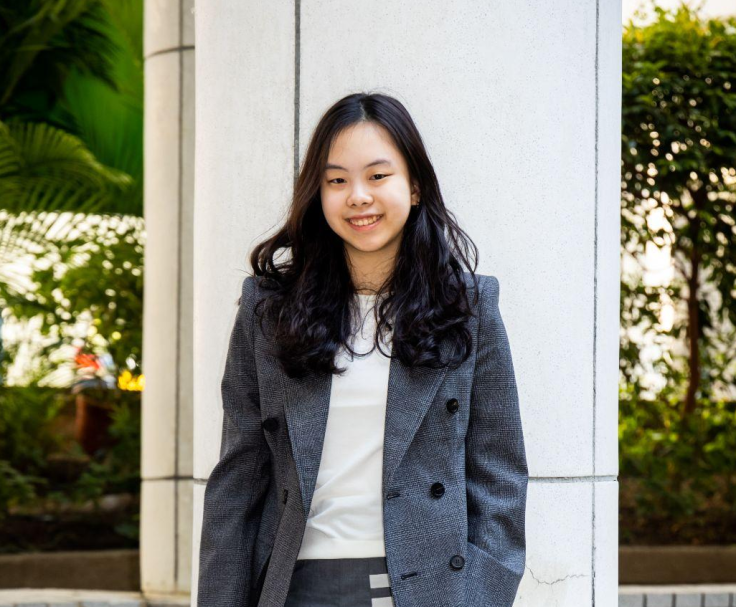This 17-Year-Old Anthropologist Is Not Afraid To Look Where Others Aren't
One of the world's most hated insects is at the core of Gabrielle Wong's research - mosquitoes. The high-school student and 1st place Winner of the Maxar Climate Mapping Challenge in the 2022 NFTE World Series of Innovation, is passionate about growing our understanding of the biting flies that play such a distinct

There are over 3,500 species of mosquitoes, yet just a few are enough to start a disease outbreak. Mosquitoes are the most common transmitters of vector borne diseases, and contribute to over a million lives taken every year - majority of which are in Africa.
In 2021, 95% of all malaria cases and 96% of deaths, occurred in Africa, but the factors that contribute to this disparity continue to be largely unknown. Despite there being a striking increase in mosquito populations across the continent, unequal access to funding and little to no opportunities for research remain a big challenge.
With a particular interest in the intersection of anthropology and computer science, Gabrielle Wong developed a software called GeoMosquito, that monitors mosquito density and malaria rates in sub-saharan Africa.
Wong's software uses machine learning to identify mosquito habitats and warn at-risk areas of infestation in the Kebbi State, Nigeria.
"GeoMosquito is a machine learning software that leverages the vastness of satellite data in combination with acoustic sensors to detect mosquitoes," Wong shares. Kebbi is one of Nigeria's largest distributors of rice, which happens to be the perfect breeding ground for mosquitoes.
"One would assume that one of the biggest rice producing states would have a huge supply of data, but that's not the case. This shows a large inequality in data collection methods in different parts of the world," Wong says.
"On the one hand, there is a surplus of data surrounding urbanized countries like China or the UK, where you have a lot of satellite images; but in rural areas like Nigeria, or other areas in sub-saharan Africa, you really can't gauge how much viable data you have. Data collection methods are either too expensive, too remote to execute, or just not viable given other factors."
Determined to change this, Wong is helping us better understand the transmission of vector borne diseases in a region where solutions are desperately needed. She has also begun examining how climate change is impacting mosquito populations and their ability to spread disease.
"Because global temperatures are on the rise, it's getting closer and closer to the ideal temperature for mosquitoes to reproduce in more parts of the world," Wong says. "Malaria is spread at 26 degrees which means people on other continents, like Europe, may begin to experience a higher risk of contracting a mosquito borne disease."
However, Wong reminds us that we still have time to develop mechanisms to protect ourselves from these diseases. "If we create some kind of sustainable solution for malaria, it can be applied to every other vector borne disease and we would have a much better leg up," she says.
Wong encourages everyone to start focusing and honing in on this problem, especially when it comes to creating systemic change in the way machine learning models work.
"None of the work I've done would be possible without the advancements of technology, most notably machine learning, which has allowed for more accurate predictions to take place. It's a really important tool in helping humans develop a sense of immunity to the problems ahead."
Organizations and institutes must begin collaborating to find the best solution. If machine learning is not 100% accurate, and someone gets sick by venturing off into a malaria infested area, that's something that could have been prevented.
"At the end of the day, technology can be a really powerful tool in advancing our work towards the UN Sustainable Development Goals, and it can truly make an impact," she concludes.
Wong is the founder of a non-profit organization Discimus Foundation, through which she has a student attendance of 9000 and launched 6 computer lab programs in 5 countries. She has presented her work at large global festivals such as the Women's Forum For The Economy And Society and the UNESCO Learning Planet Festival.
Through Discimus, Gabrielle was nominated as a finalist for The Commonwealth Youth Award and also received The 2023 Diana Award, the most prestigious accolade a young person aged 9-25 years can receive for their social action or humanitarian work.
Wong's work reminds us that change is in our hands - literally! By using technology as a tool, we can work together to tackle some of our world's biggest challenges. To learn more about Gabrielle Wong and her vision for change, visit Discimus Foundation.





















